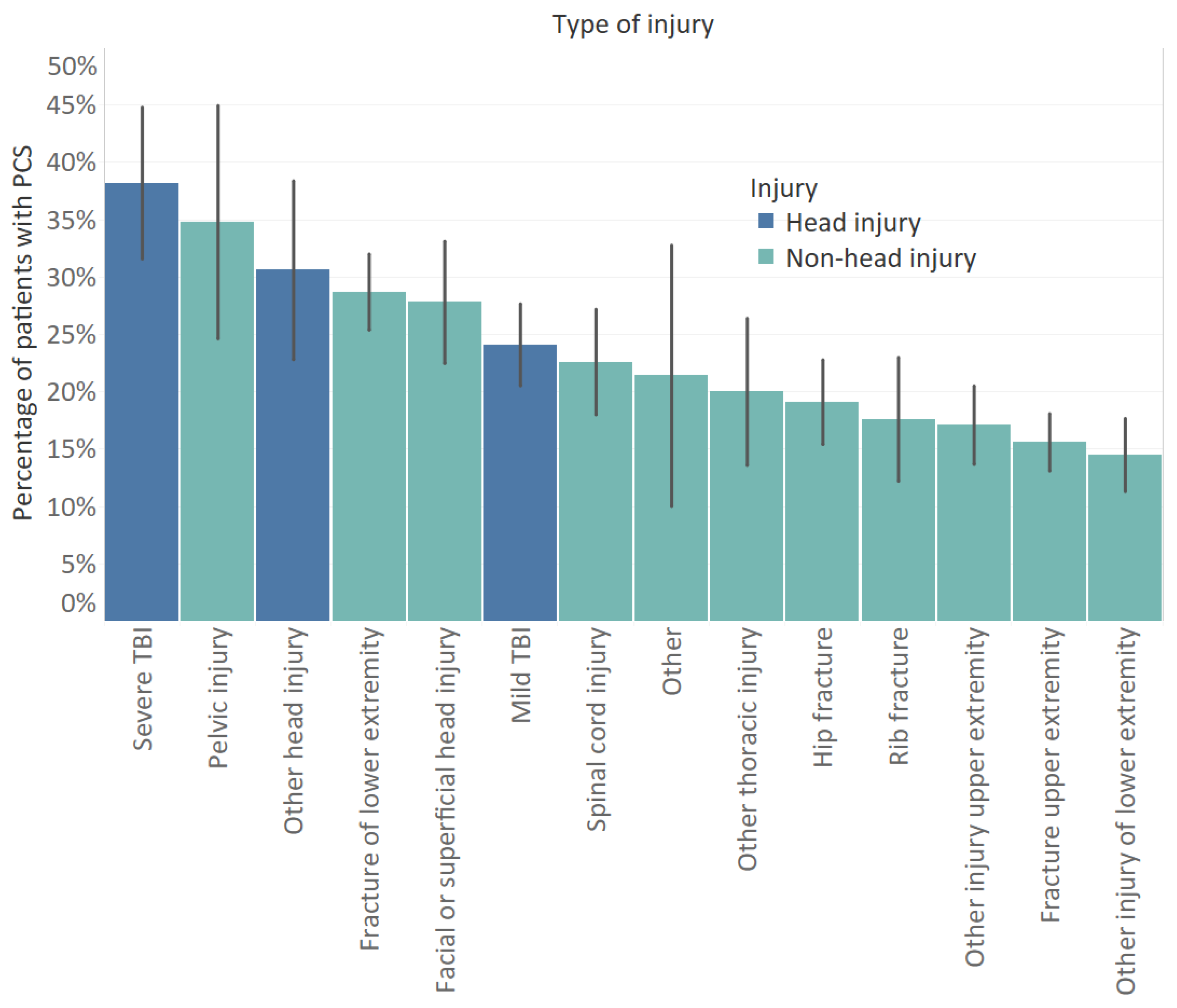Texas PCS Cases: Determining a Fair Settlement Value.
If you’ve ever had a concussion, you know it can turn your whole world upside down. Some people bounce back in a few weeks, but for others, the symptoms just don’t go away. That’s when doctors call it post-concussion syndrome (PCS). We’re talking about headaches that linger, trouble sleeping, memory lapses, dizziness, or even feeling down and depressed long after the accident is over.
Living with PCS isn’t easy, and if your injury came from someone else’s negligence, you may also be dealing with insurance adjusters or legal questions on top of everything else. How do you put a fair dollar value on something that affects every part of your life? That’s exactly what we’ll unpack here – what PCS really is, why it’s so hard to measure, and what goes into figuring out a fair settlement when you’re living with it.
What Post-Concussion Syndrome Really Means for You
Post-concussion syndrome (PCS) is one of those conditions that’s easy to dismiss from the outside but tough to live with on the inside. A concussion itself is already a type of traumatic brain injury, but PCS happens when the symptoms stick around far longer than expected – sometimes for months or even years.

What makes PCS tricky is that it doesn’t look the same for everyone. For some, it’s the constant headaches or dizziness. For others, it’s the brain fog, memory issues, or sensitivity to light and noise. Mood changes are common too, which can make everyday life even harder.
Simple things – like focusing on work, running errands, or enjoying time with family – can feel overwhelming. And unlike a broken arm or a visible injury, PCS doesn’t always show on the outside. That makes proving it, and getting fair compensation for it, much more complicated.
This is why working with doctors who understand PCS is so important. Specialists can connect the dots between your accident and your ongoing symptoms. Their documentation isn’t just about treatment; it’s also the foundation of any strong legal case for fair compensation.
Getting a Proper Diagnosis After a Concussion
When it comes to post-concussion syndrome, one of the most important things you can do is get medical help right away. Not only does this protect your health, it also gives you the documentation you’ll need if you pursue a claim later.
Doctors look for a cluster of ongoing symptoms to confirm PCS. These often include:
- Persistent headaches
- Dizziness or balance problems
- Short-term memory issues
- Trouble concentrating
- Sensitivity to light or noise
- Fatigue and sleep disturbances
- Mood swings, irritability, or depression
Here’s the difference between a typical concussion recovery and PCS:
| Typical Concussion | Post-Concussion Syndrome (PCS) |
|---|---|
| Symptoms last 1–3 weeks | Symptoms linger for months or even years |
| Gradual improvement | Symptoms come and go, sometimes without warning |
| Most people fully recover | Some people never feel “back to normal” |
Getting checked out serves two purposes:
- Your health comes first. A specialist can rule out other conditions, track your progress, and recommend therapies that may help.
- It creates a paper trail. Medical records link your accident to your ongoing struggles. Without that connection, insurers may argue your symptoms aren’t serious – or aren’t even related.

The bottom line: early diagnosis shows you’re taking your recovery seriously, and it gives you stronger footing if you need to fight for fair compensation later.
Keeping Track of Symptoms and Daily Struggles
One of the best tools you have when dealing with PCS is a simple notebook or app where you log your symptoms. Why? Because memory issues and brain fog are common with concussions, and without a record, it’s easy to forget just how often symptoms show up – or how much they disrupt your day.
Here’s what to include in a symptom diary:
- Date and time the symptom appeared
- Type of symptom (headache, dizziness, memory lapse, etc.)
- Severity on a 1–10 scale
- How long it lasted
- What you were doing when it started (work, chores, exercise, screen time)
You’ll also want to document:
- Doctor visits and test results
- Medications or therapies and how well they worked
- Daily limitations (for example: “had to leave work early because of headache” or “skipped family dinner due to noise sensitivity”)
Over time, this log builds a clear picture of how PCS affects your life.
| What to Track | Why It Matters |
|---|---|
| Symptoms (frequency, intensity) | Shows the ongoing impact of PCS |
| Medical treatments | Documents your efforts to recover |
| Missed work or activities | Demonstrates financial and lifestyle losses |
| Triggers (stress, screen time, loud noise) | Helps doctors fine-tune treatment |
When it’s time to negotiate with an insurance company, this diary becomes powerful evidence. Instead of saying, “I’ve had a lot of headaches,” you can point to a detailed record that proves the severity and frequency of what you’re going through. It not only helps your doctors treat you better, it strengthens your case for fair compensation.
The Long-Term Effects of PCS
Post-concussion syndrome isn’t something you can just “walk off.” For many people, the effects linger, shaping everything from work performance to personal relationships. Understanding these long-term impacts is key when it comes to building a case for fair compensation.
Some of the long-term challenges people with PCS face include:
- Cognitive issues: memory lapses, trouble focusing, slower processing speed
- Physical problems: chronic headaches, balance issues, sensitivity to light or sound
- Emotional struggles: depression, anxiety, mood swings, irritability
- Behavioral changes: loss of patience, difficulty handling stress, personality shifts
Here’s how experts usually break it down:
| Area of Life | Possible Long-Term Impact of PCS |
|---|---|
| Work & Career | Reduced productivity, missed promotions, inability to perform prior job duties |
| Daily Living | Trouble with driving, chores, or even simple routines |
| Relationships | Strain on family and friendships due to mood changes or lack of energy |
| Mental Health | Ongoing depression, anxiety, or feelings of isolation |
Because PCS affects both the body and the mind, specialist evaluations are critical. Neurologists, neuropsychologists, and rehabilitation doctors can test cognitive and physical abilities, helping paint an objective picture of the condition. Their findings aren’t just medical – they’re the kind of evidence that carries weight in a legal claim.
The reality is, PCS can create lasting limitations. And when those limitations follow you for years, they should absolutely factor into what’s considered a fair settlement.
The Financial Burden of Living With PCS
PCS doesn’t just affect your health – it hits your wallet too. Many people underestimate just how expensive ongoing care can become when symptoms refuse to fade.
Common ongoing costs include:
- Regular visits to neurologists or concussion specialists
- Physical therapy to improve balance and coordination
- Cognitive therapy to help with memory and focus
- Counseling or psychiatric care for mood changes and depression
- Prescription medications for pain, sleep, or anxiety
And it’s not just medical bills. You may also need:
- Time off work for appointments
- Reduced hours – or leaving your job entirely – because symptoms make it impossible to keep up
- Help with childcare, driving, or daily tasks when you can’t manage them alone
Here’s how it usually breaks down:
| Type of Expense | Examples | Impact Over Time |
|---|---|---|
| Medical Care | Specialist visits, MRIs, therapies | Thousands of dollars per year |
| Medications | Pain relievers, antidepressants, sleep aids | Monthly recurring costs |
| Lost Income | Missed work, reduced hours, lost career opportunities | Often the biggest long-term loss |
| Lifestyle Adjustments | Home modifications, hired help | Adds financial stress on family |
Keeping receipts, invoices, and records of time missed from work helps show the true financial weight of PCS. When it comes time to negotiate, these numbers tell the story that symptoms alone can’t: PCS isn’t just painful, it’s expensive, and a fair settlement has to account for that.
How PCS Changes Daily Life
One of the hardest parts about post-concussion syndrome is how much it can interrupt normal routines. Things you once did without thinking can suddenly feel overwhelming or impossible.
Everyday challenges may include:
- Struggling to cook dinner because bright lights and noise trigger headaches
- Forgetting simple tasks like paying bills or locking the door
- Needing naps during the day just to get through work or household chores
- Avoiding social events because crowds or loud music make symptoms worse
At work, PCS can cause:
- Trouble concentrating or remembering instructions
- Slower task completion
- More mistakes than usual
- Needing frequent breaks or even extended time off
And beyond work, PCS can chip away at the overall quality of life. Hobbies you loved may not feel possible anymore. Relationships may suffer because of irritability, fatigue, or the need to constantly cancel plans. Over time, this takes a real emotional toll.
| Area of Life | Impact of PCS |
|---|---|
| Daily Activities | Routine chores and self-care feel exhausting |
| Work | Reduced productivity, missed opportunities |
| Social Life | Avoiding gatherings, straining friendships |
| Family | Stress in relationships, role changes at home |
When it comes to settlement negotiations, these lifestyle impacts carry weight. They show that PCS isn’t just about doctor’s visits or medical bills – it’s about how your entire way of living has changed. That perspective matters when determining what’s fair compensation.
The Emotional Side of PCS
Living with post-concussion syndrome isn’t just about physical pain. The emotional weight can be just as heavy – sometimes heavier. Constant headaches, dizziness, or brain fog can leave you feeling frustrated and disconnected from the life you had before the injury.
Many people with PCS experience anxiety or depression. Some notice changes in their personality, becoming more irritable or withdrawn. And because these symptoms are invisible, friends, coworkers, and even family members might not fully understand what you’re going through. That lack of understanding can create feelings of isolation on top of everything else.
These emotional struggles don’t just affect you; they affect your relationships, your work, and your overall sense of well-being. That’s why they deserve to be part of any conversation about fair compensation. Settlements shouldn’t only cover the medical bills and lost wages – they should also account for the mental and emotional strain PCS causes.
Why Legal Help Makes a Difference
Dealing with PCS is overwhelming enough without having to fight an insurance company on your own. This is where having an experienced personal injury attorney becomes essential.
A good lawyer will dig into your medical records, consult with doctors who specialize in brain injuries, and gather the kind of evidence that clearly connects your concussion to your ongoing symptoms. They’ll also look at the bigger picture – what PCS means for your future medical needs, your ability to earn a living, and your overall quality of life.
Insurance companies are notorious for downplaying invisible injuries like PCS. An attorney who knows how these cases work can push back, handle negotiations, and make sure you’re not pressured into accepting a low offer. Their role is to show the full scope of your losses – physical, financial, and emotional – and fight for a settlement that reflects that reality.
Simply put, the right legal team gives you the support and leverage you need so you can focus on recovery while they focus on making sure you’re treated fairly.
What Goes Into a Fair Settlement Value
There isn’t a one-size-fits-all number for PCS settlements. Instead, attorneys and insurance adjusters look at several key factors to come up with a fair value:
- Medical expenses: Past, present, and future costs for doctor visits, therapy, medications, and tests.
- Lost wages: Income you’ve already missed, plus the effect PCS may have on your future earning potential.
- Pain and suffering: The physical pain, emotional stress, and loss of enjoyment of life caused by ongoing symptoms.
- Impact on daily life: The ways PCS limits your ability to work, care for yourself, or enjoy hobbies and relationships.
Because PCS can last months – or even years – future costs and limitations often make up a big part of the calculation. That’s why detailed medical records, symptom tracking, and expert evaluations are so important. They turn your story into clear evidence that supports a higher settlement.
A fair settlement should do more than cover your bills. It should give you financial breathing room while you focus on recovery and adjusting to the changes PCS has brought into your life.
Take the Next Step Toward Recovery
If you’re still dealing with the effects of a concussion, you don’t have to face the insurance companies or the legal process on your own. Post-concussion syndrome can affect every part of your life, and you deserve compensation that reflects the full impact it’s had on you.
The team at Genthe Law has experience handling PCS cases and understands how to prove the toll it takes – physically, emotionally, and financially. Let us focus on the legal fight so you can focus on healing.
Call us today at (214) 957-0898 for a free consultation and let’s talk about how we can help you pursue the settlement you deserve.
Page Contents
- Texas PCS Cases: Determining a Fair Settlement Value.
- What Post-Concussion Syndrome Really Means for You
- Getting a Proper Diagnosis After a Concussion
- Keeping Track of Symptoms and Daily Struggles
- The Long-Term Effects of PCS
- The Financial Burden of Living With PCS
- How PCS Changes Daily Life
- The Emotional Side of PCS
- Why Legal Help Makes a Difference
- What Goes Into a Fair Settlement Value
- Take the Next Step Toward Recovery



